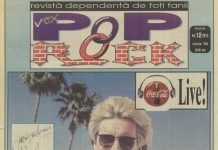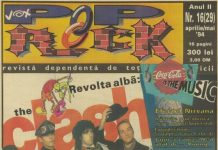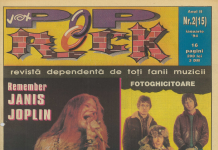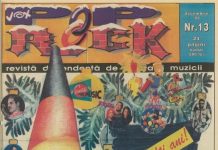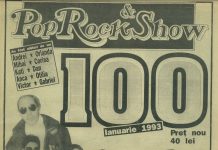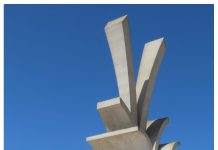Parlamentul European a adoptat marţi directiva referitoare la drepturile de autor pe internet, cu 348 de voturi pentru, 274 împotrivă şi 36 de abţineri, marcând încheierea unui proces legislativ care a început în 2016.
Decizia Parlamentului European urmează să fie adoptată în următoarele săptămâni de statele membre. Dacă statele membre vor accepta textul adoptat de Parlamentul European, acesta va intra în vigoare după publicarea în monitorul oficial, iar apoi statele membre vor avea la dispoziţie doi ani să o implementeze. Directiva are rolul să asigure că drepturile şi obligaţiile prevăzute de legea copyright-ului vor fi aplicate şi internetului.
YouTube, Facebook şi Google News sunt unele dintre companiile cu activităţi online care vor fi direct afectate de această legislaţie. Directiva are rolul să asigure că internetul va rămâne un spaţiu de exprimare liberă, dar să întărească în acelaşi timp drepturile de autor ale muzicienilor, artiştilor şi scriitorilor, precum şi ale publisherilor de ştiri.
Aceştia vor putea să negocieze remuneraţii mai bune pentru utilizarea lucrărilor lor, atunci când sunt afişate pe platformele de internet. Directiva va asigura acest lucru prin faptul că platformele de internet vor fi direct răspunzătoare de conţinutul afişat pe site-urile lor şi prin dreptul publisgerilor de ştiri de a negocia acorduri în numele jurnaşiştilor săi, pentru ştirile folosite de agregatoarele de ştiri.
Încărcarea de conţinut pentru a-l cita, critica, evalua, caricaturiza sau parodia a fost protejat chiar mai mult decât înainte.
Textul precizează că încărcarea de conţinut pe enciclopediile online, în scop necomercial, cum este cazul Wikipedia, sau platformele de software open source, cum este cazul GitHub, nu va intra sub incidenţa acestei directive. Platformele startup vor avea obligaţii mai puţine decât cele consacrate
Găsiți articolul în întregime aici:
Ca să înțelegeți mai bine, iată și câteva articole din presa internațională:
The whole situation is quite complicated, and we’ve covered it in further detailbefore, but the basic principals are fairly simple. Article 11, or what’s come to be known as the “link tax,” requires web platforms to obtain a license to link to or use snippets of news articles. This is intended to help news organizations gain some revenue from services like Google News that display a headline or a portion of an article that it suggests to readers. Article 13 requires a web platform to make their “best efforts” to obtain licenses to copyrighted material before it is uploaded to their platforms and changes the current standard of requiring platforms to simply comply with copyright takedown requests. The expectation is that platforms will have to use imperfect upload filters to deal with the flood of user-generated content, and the most draconian moderation practices will become the new normal. In both cases, critics argue that the directive is too vague and efforts to fix the issues are shortsighted.
Mai multe aici: https://gizmodo.com/a-dark-day-copyright-law-that-threatens-the-internet-a-1833570802
YouTube, Facebook and Google News will be ‘directly affected’ as Europe approves new internet copyright rules
Critics have dubbed one feature of the new legislation a ‘link-tax‘ because it gives publishers power to negotiate deals with internet giants like Google that use their content to power its Google News service. Another section of the legislation has been criticised for potentially introducing internet censorship by requiring companies to take responsibility for content uploaded by users. This has lead to fears that so-called ‘upload filters’ will limit what people are allowed to upload and, as well as stopping copyrighted material from being uploaded, will also prevent lots of legitimate content from being shared.
Europe argues the directive aims to help musicians, performers and script authors, as well as news publishers, to negotiate better deals for the use of their works when these feature on internet platforms. It does this by making internet platforms directly liable for content uploaded to their. News aggregators will only be able to use very short snippets of text or otherwise may have to pay.
However, uploading protected works for quotation, criticism, review, caricature, parody or pastiche has been protected even more than it was before, ensuring that memes and Gifs will continue to be available and shareable on online platforms. Uploading works to online encyclopedias in a non-commercial way, such as Wikipedia, or open source software platforms, such as GitHub, will automatically be excluded from the scope of this directive, while Europe said start-up platforms will be subject to lighter obligations than more established ones.
It said that currently, internet companies have little incentive to sign fair licensing agreements with rights holders, because they are not considered liable for the content that their users upload. Making internet companies liable make it easier for creatives to get a better deal, Europe said.
European parliament rapporteur, Axel Voss said the directive is an important step towards correcting a situation which has allowed „a few companies to earn huge sums of money without properly remunerating the thousands of creatives and journalists whose work they depend on”.
Articolul în întregime aici: https://www.zdnet.com/article/youtube-facebook-and-google-news-will-be-directly-affected-as-europe-approves-new-internet-copyright-rules/
Europe’s controversial new copyright law is as clear as mud
- De 30 de ani cu Nicu Alifantis & Zan (cronică de concert, 30.06.2025) - iulie 1, 2025
- SUCEAVA BLUES FESTIVAL – „FANI ADUMITROAIE” (EDIȚIA a XVI-a, 04-06 iulie 2025) - iunie 30, 2025
- Inegalabilul Tom Jones (cronică de concert, 26.06.2025) - iunie 29, 2025






















